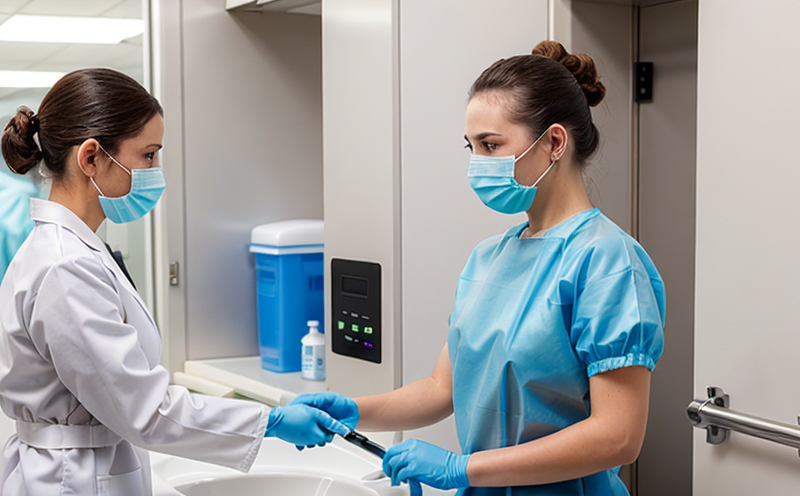Testing of hospital curtain fabrics for antimicrobial resistance
The testing of hospital curtain fabrics for antimicrobial resistance is a critical component in the healthcare sector aimed at ensuring patient safety and maintaining high standards of hygiene. Hospital curtains are used extensively across various medical facilities, including hospitals, clinics, and rehabilitation centers, where they play an essential role in creating a hygienic environment. However, these materials can harbor bacteria, fungi, and other pathogens that may pose health risks to patients.
The primary objective of this testing is to evaluate the effectiveness of the antimicrobial treatments applied to hospital curtain fabrics and ensure their compliance with international standards such as ISO 20743:2018. This standard provides a framework for determining the efficacy of antimicrobial finishes, ensuring that the materials used in healthcare settings are safe and effective.
The testing process involves several steps, starting from specimen preparation to final reporting. Specimens are typically cut from actual curtain fabric samples, which undergo rigorous testing using both quantitative and qualitative methods. The tests aim to assess the antimicrobial efficacy under various conditions, including exposure time, temperature, and humidity levels.
Key parameters include:
- Antimicrobial activity against specific pathogens
- Residual antimicrobial properties after multiple wash cycles
- Efficacy of the treatment in reducing microbial load on the fabric surface
- Biodegradability and environmental impact of the antimicrobial agents used
The testing procedure also involves the use of specialized instruments such as agar diffusion tests, standardized bacterial growth inhibition assays, and quantitative PCR for quantifying viable pathogens. These methods provide detailed insights into the performance of the fabrics under controlled laboratory conditions.
Given the critical nature of this service, it is essential to work with a reputable laboratory that adheres strictly to international standards and employs experienced personnel. At our facility, we ensure that all tests are conducted in accordance with ISO 20743:2018, providing accurate and reliable results that can be trusted by quality managers, compliance officers, R&D engineers, and procurement teams.
Our comprehensive testing services not only help facilities meet regulatory requirements but also enhance patient safety by ensuring the use of high-quality, antimicrobial fabrics in critical areas. By partnering with us, you can rest assured that your hospital curtain fabrics are thoroughly tested for their antimicrobial properties, thus contributing to a safer and healthier healthcare environment.
Industry Applications
| Application Area | Description |
|---|---|
| Hospital & Medical Facilities | Curtain fabrics are used extensively in hospitals to maintain hygiene and prevent the spread of infections. |
| Rehabilitation Centers | The use of antimicrobial curtains helps reduce cross-contamination risks in rehabilitation settings. |
| Clinics & Outpatient Units | Antimicrobial properties are crucial for preventing the spread of pathogens in outpatient care environments. |
| Laboratories & Research Facilities | Curtains used in laboratories need to be resistant to microbial contamination, ensuring accurate experimental results. |
Quality and Reliability Assurance
The reliability of our testing services is paramount in ensuring that hospital curtain fabrics meet the highest standards of hygiene. Our laboratory adheres strictly to international standards such as ISO 20743:2018, which provides a robust framework for assessing antimicrobial efficacy.
Our quality management system ensures consistent and accurate results through:
- Dedicated personnel trained in the latest testing methodologies
- State-of-the-art equipment calibrated regularly to maintain precision
- Stringent quality control measures at every stage of the testing process
- Comprehensive documentation and reporting aligned with international standards
We also offer additional services such as training workshops for facility staff on proper curtain care and maintenance, further enhancing our commitment to maintaining high standards in healthcare environments.
Environmental and Sustainability Contributions
- Use of sustainable materials that minimize environmental impact
- Eco-friendly antimicrobial treatments that reduce the need for harsh chemicals
- Energy-efficient testing processes to lower carbon footprint
- Continuous monitoring and improvement of sustainability practices





